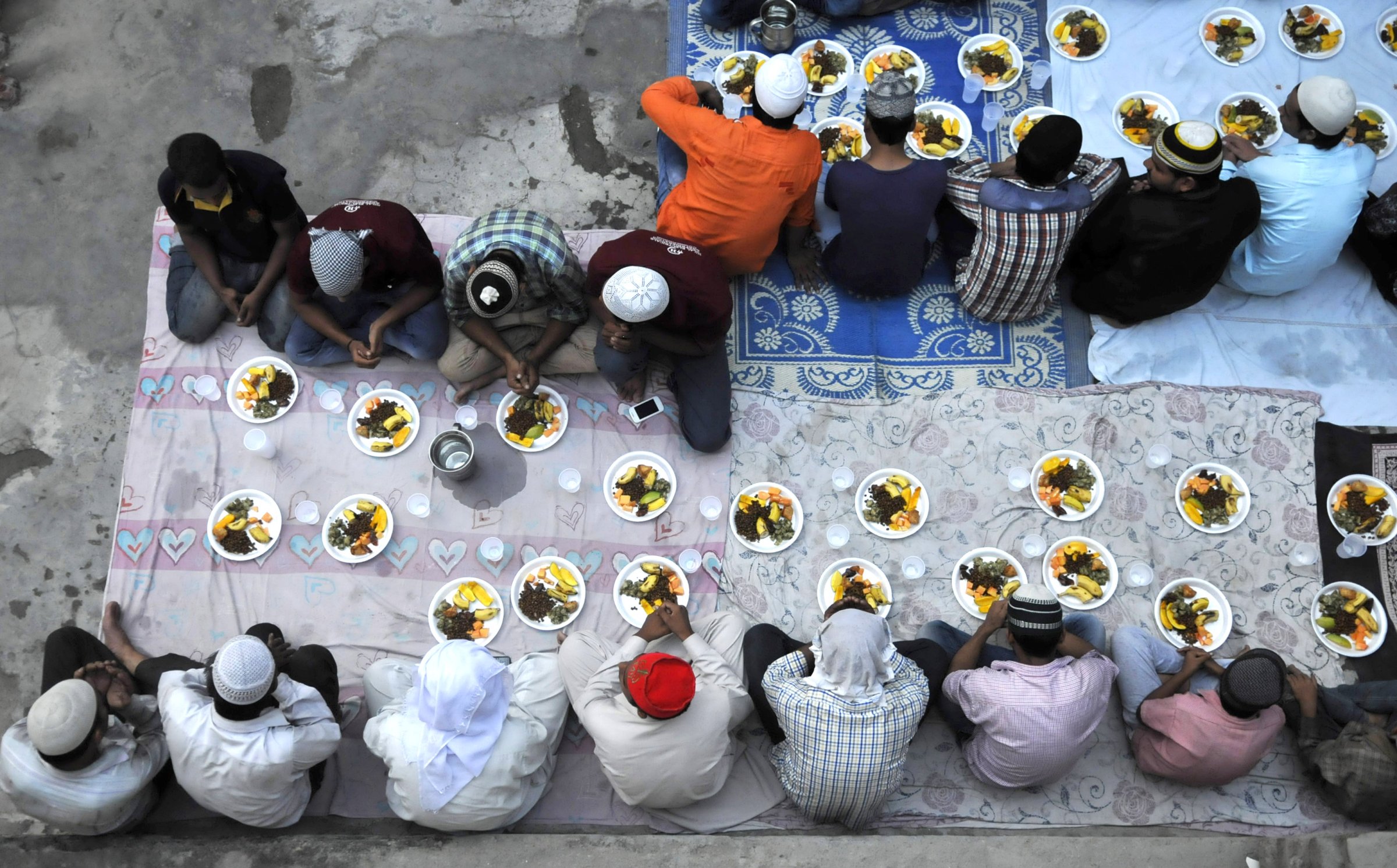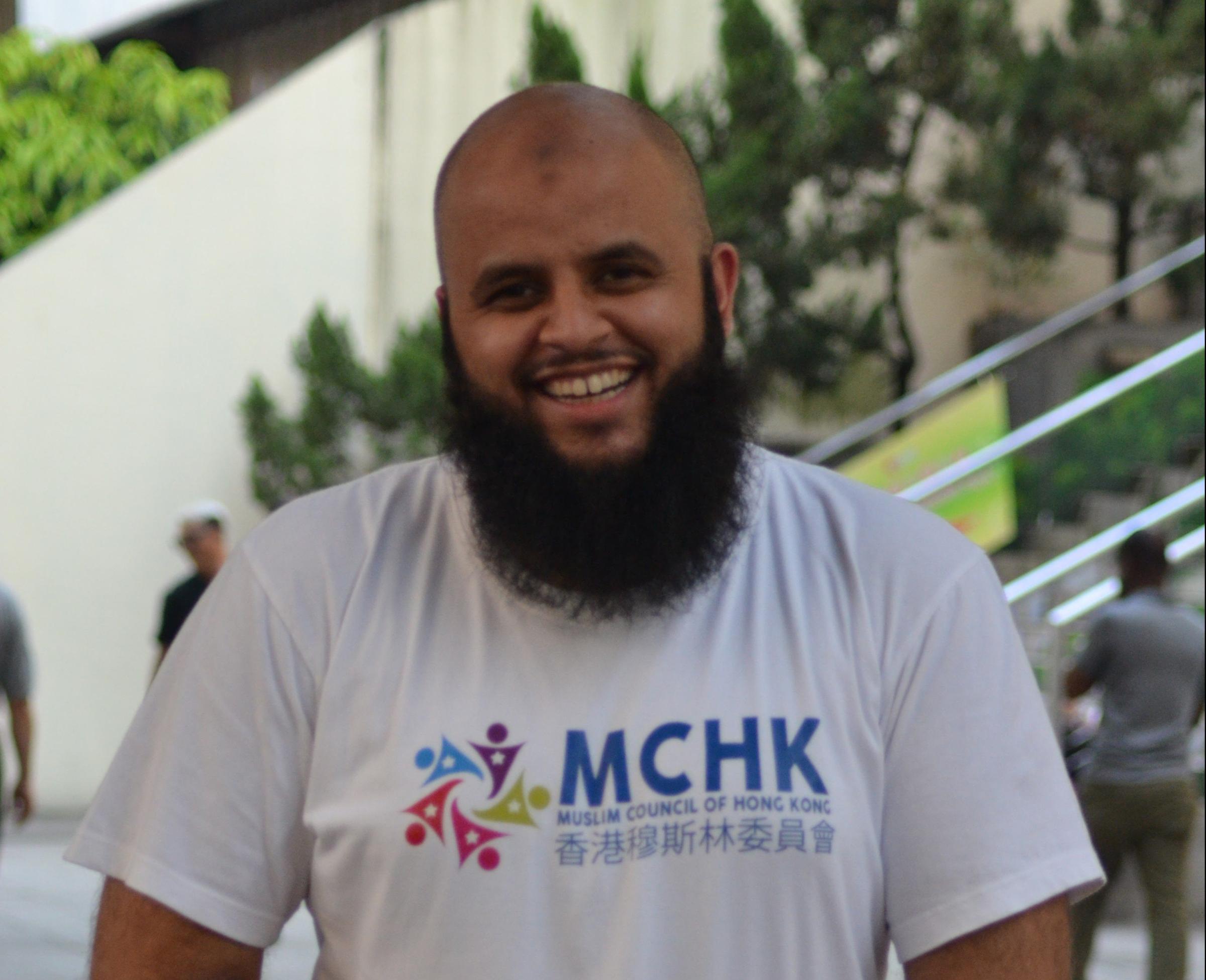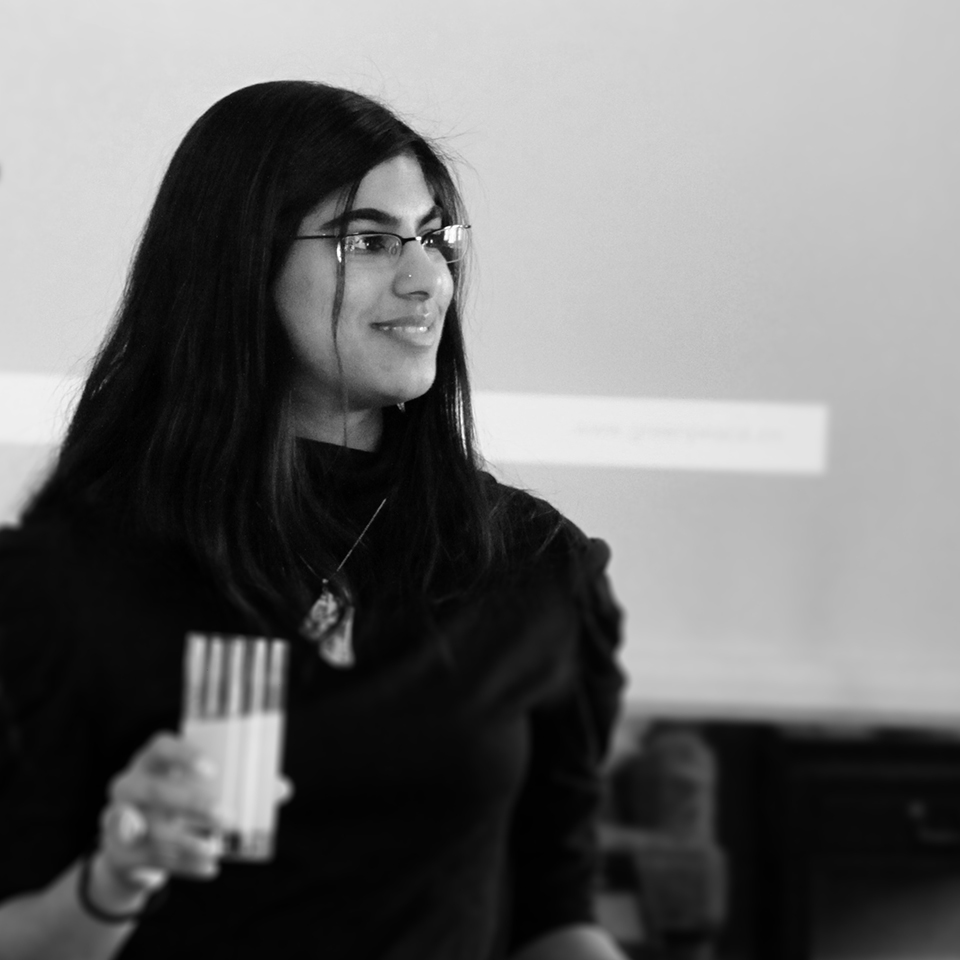
The holy month of Ramadan begins on Saturday for about 1.6 billion Muslims around the world. During the 30 days, Muslims will fast from dawn until dusk — abstaining from food, drink and acts or thoughts considered immoral. The month is also a time for Muslims to give to charity, spend time with family and become closer to God.
During Ramadan, Muslims wake before dawn to eat a light meal called suhoor, and they break their fast at sunset with a meal known as iftar. Different cultures around the world observe Ramadan in different ways but iftar is usually a big social event involving friends, family and the community.
Daylight hours also vary widely for those fasting, depending on where they live and what season it is. When Ramadan falls in the northern hemisphere’s summer months, like this year, Muslims in Europe will have to wait until around 9:00 p.m. to break fast, several hours after those in Southeast Asia can begin eating.
TIME spoke to several young Muslims from across the globe who shared what Ramadan means to them.

Adeel Malik
Community organizer, Hong Kong
Since I decided to take Islam seriously, Ramadan has become much more than just fasting for me. It’s about reassessing my connection with Allah, trying to build a stronger bond with Him by reading more of His Book, and fulfilling the Sunan [the teachings of the Prophet Muhammad].
The main aim of the fast is not to starve oneself. It’s a means of seeking God-consciousness. Ramadan is a month where Muslims love to give in charity, hold family gatherings building those kinship ties and learn to be grateful for the countless blessings they have in their lives. It’s like an intensive one month training camp for us to cleanse our spiritual selves. This doesn’t just mean reading the Quran and praying: in Islam, an act of worship could also be seeking knowledge, spending quality time one’s family and even resting in order to gain energy for future acts of worship.
The weather is generally very hot and humid in Hong Kong, so the thirst level increases that much more. Pakistan is similar but fasting in a Muslim country gives you a sense of belonging, since the whole community is observing the fast and we’re all in the same boat. Muslims living in Hong Kong find it quite difficult with local restaurants even outside of Ramadan, as there’s a lack of halal food places and even those claiming to be vegetarian often don’t follow strict guidelines and have cross-contamination issues. Most Muslims cook themselves or go to Muslim restaurants to be on the safe side.
Is it tough seeing and smelling food as we walk around the streets and shopping malls? Yes! But that’s what it’s all about — a test.
Jeehan Dahman Balfaqaih
Partner at a global advisory firm, Dubai
Ramadan is the one month in the year that I can focus on my spiritual beliefs. The other thing I appreciate during the month is time with family. Outside of the month, we hardly sit around a table together for a meal because of our different working hours and commitments. Breaking fast, iftar, brings us all together and it is a daily feast.
Fasting isn’t easy — especially in the summer months when the hours are long and the temperature high. In the UAE we are lucky because by law, working hours are shorter during Ramadan, but I tend to work the same hours as my productivity isn’t impacted by fasting.
The hardest part of fasting is not drinking water, but the body adapts in a few days. Personally I don’t smoke or drink caffeine, so I am not impacted. Those who do usually struggle more during Ramadan, but it can also be a good time to get rid of bad habits.
I used to fast while studying in the U.K. and Canada and my routine didn’t change during Ramadan. Admittedly, when I was there Ramadan was during the winter months so it was easier as it meant shorter hours. I plan to be in London during some of this Ramadan, and I know the fasting hours will be long. This difficulty reminds me of one of the objectives of fasting, which is remembering those less fortunate.
Maher Ali
Business analyst, New York City
Ramadan is the time of the year when life becomes centered on home again. Every day, at home, our family will eat together in the morning and then break fast together with iftar at night. It gives me more appreciation for sober family fun — staying in, hanging out and playing games.
It’s also a time for us to take notice of those less fortunate than ourselves, and to test if we really have control over our own lives. I don’t find the fasting that difficult — it’s just like skipping lunch, which I do every so often when I forget.
For me, it’s more a matter of not being able to exercise, which is a bad idea after you’ve been fasting all day or just after eating. I’ll often just suck it up and do it just before I break my fast, or in the morning when it’s not too cold.
I’ve also lived in Saudi Arabia and Bahrain. There, hours tends to be shorter — everything slows down and people take things easier. At night there are lots of social activities for people to go out and drink tea and coffee, smoke hookah or play games.
In the U.S. you’re a minority so you don’t get any special considerations, and you’re not part of a community of people who are all going through the same thing. This can be even more meaningful though, in a different way: since it’s more of a challenge, you’re much more aware of what you’re doing.

Sereen Debs
Teacher/interpreter, Hong Kong/Damascus
Fasting in Ramadan is tough, especially during the summer. But it’s meant to test our ability to control our feelings and desires when we’re not in the best state. It’s about getting a sense of what it feels like to be poor. To me, it’s also about detox and meditation: being able to connect with your own self, apart from all the materialist factors in your life.
The biggest challenge for me personally, is staying physically strong, as you feel fatigued by the end of the day. Waking up and not having your daily coffee or breakfast is the hardest part, it makes your concentration and energy level go down. Also maintaining a good attitude. You have to learn to focus on what’s good when you feel weak.
Fasting back home, in Damascus and in Beirut was easier, there’s a different vibe in the city. The challenges you face are pretty much the same, but when the majority of people around you are experiencing it with you it makes things easier. We got back an hour earlier from school and work. Restaurants open till late hours. A big part of Ramadan is about the family gatherings. It’s really important to connect with family during this month. People invite each other for breaking the fast.
This year will be my first Ramadan outside the Middle East and I’m sure it’s going to be tougher. But to me Ramadan isn’t just about not eating and drinking. It’s about cleansing your soul. If you stop eating and drinking but walk around with a bad attitude and treat people poorly, you’re doing it all wrong.

Zara Arshad
Curatorial research assistant, London
For me, Ramadan is a time to reflect — to make more of a concerted effort to think of others, especially those that might be less fortunate than me.
Fasting is also a personal challenge, one that requires sabr (patience). As a working professional, I often meet colleagues or others over a cup of tea or for lunch. During fasting season, this is no longer possible, which is often a challenge.
The long summer days in the U.K. can make fasting hard, but my working week is usually busy, which personally helps me. Sometimes though, maintaining energy or motivation is also about taking time; almost reaching a meditative state.
I grew up in Jakarta and Damascus as well as in the U.K., and I also lived in Beijing for several years. Fasting in Indonesia and Syria was a beautiful experience: each of the countries had mechanisms in place to facilitate the fasting process, such as different working hours.
What really stayed with me most, though, was the sense of community I felt in each of these places during fasting season, especially during iftar. It’s a wonderful experience when people — regardless of whether they know each other or not — come together to share food.
At the end of the month, Ramadan leaves me with a sense of achievement, and sharing this experience with others helps me to build up a strong sense of community with the people around me.
Faeez Fadhlillah
Entrepreneur, Malaysia
To me, Ramadan is a time to increase one’s patience and to focus on generosity towards mankind especially the less fortunate. It is the month we are closest to God, and also a time for us to become closer to the people around us.
Ramadan opens up the opportunity for me to spend time eating together with my family, unlike other times of the year when I’m completely occupied with work. This gives us an opportunity to reflect and to be grateful for everything that we have and share our blessings with others.
Being in the travel business, it’s part of my job to be constantly on the move. Technology is indispensable in helping me find Muslim-friendly hotels that provide sahoor and serve halal food, to determine prayer times and the correct direction, wherever I am. However, it can also take over too much of our lives. I try to be on the phone and computer less during Ramadan, since I think an important part of the month is living in the here and now.
Ramadan is a special time when we self-reflect and see how we can improve ourselves for the months to come. Experiencing Ramadan makes me more patient and balanced throughout the year. I realize Allah is always by my side, and I never feel alone.
With reporting by Joseph Hincks
More Must-Reads from TIME
- Donald Trump Is TIME's 2024 Person of the Year
- Why We Chose Trump as Person of the Year
- Is Intermittent Fasting Good or Bad for You?
- The 100 Must-Read Books of 2024
- The 20 Best Christmas TV Episodes
- Column: If Optimism Feels Ridiculous Now, Try Hope
- The Future of Climate Action Is Trade Policy
- Merle Bombardieri Is Helping People Make the Baby Decision
Contact us at letters@time.com